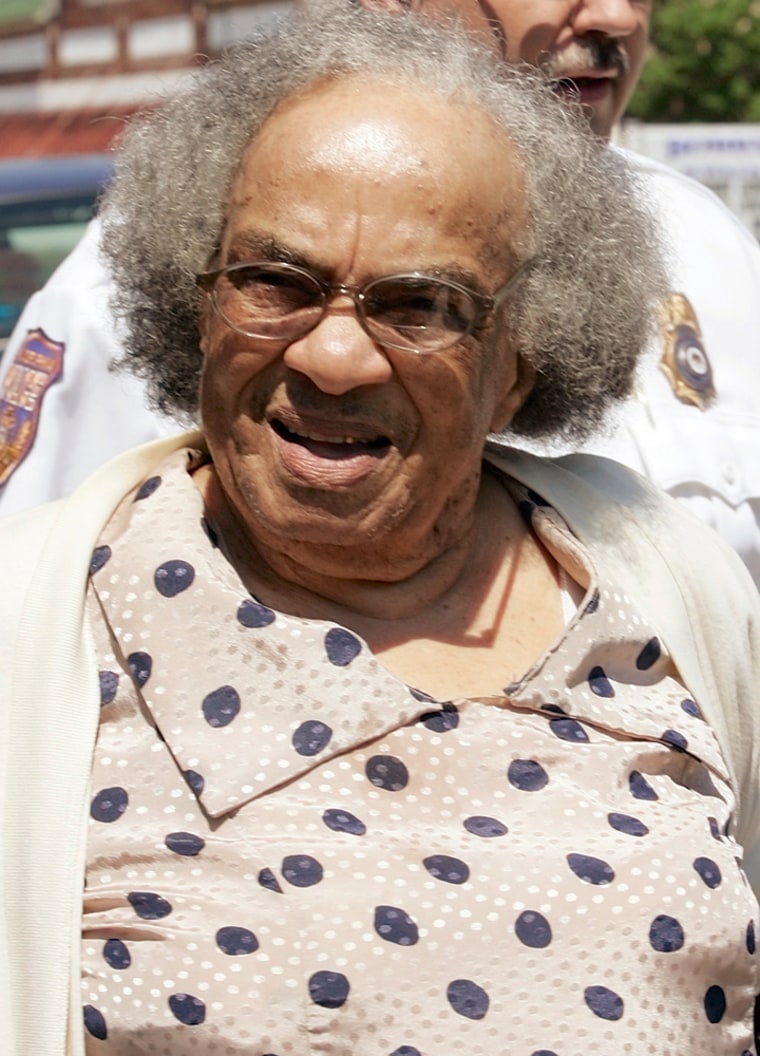Fannie Lee Chaney, the mother of one of three civil rights workers killed in the “Mississippi Burning” case in 1964, has died, her son said Wednesday. She had lived to see a reputed Klan leader convicted two years ago in the young men’s deaths.
Ben Chaney confirmed her death Tuesday from his mother’s home in Willingboro, N.J. He said funeral arrangements were pending and information would be released later.
James Chaney, his older brother, was killed on June 21, 1964, in central Mississippi’s Neshoba County, along with fellow civil rights workers Michael Schwerner and Andrew Goodman.
Mississippi prosecutors revived their investigation of the slayings a few years ago, and Fannie Lee Chaney testified in June 2005 at the Philadelphia, Miss., trial of reputed Ku Klux Klan leader Edgar Ray Killen.
Killen was convicted on three counts of manslaughter on June 21, 2005 — exactly 41 years after the killings. Now 82, Killen is serving a 60-year prison sentence.
Fannie Lee Chaney, then 82, testified that on the morning of the killings, she made breakfast at her Meridian, Miss., home for Schwerner, Goodman and her son, whom she called “J.E.” She said her son went to join the other two in delivering books.
“He never come back,” she said.
Fannie Lee Chaney said she moved from Mississippi in 1965 after receiving threats, including one from a man who said he would dynamite her house and another caller who told her she would “be put in a hole like James was.”
3 deaths in Freedom Summer
Chaney, a black man from Mississippi, and Schwerner and Goodman, white men from New York, were looking into the torching of a black church and helping register black voters during what was called Freedom Summer. They had been stopped for speeding, jailed briefly and then released, after which they were ambushed by a gang of Klansmen.
Their bodies were found weeks later buried in an earthen dam. They had been beaten and shot.
Killen was tried along with several others in 1967 on federal charges of violating the victims’ civil rights. The all-white jury deadlocked in Killen’s case, but seven others were convicted. None served more than six years. Killen was the only person ever indicted on state murder charges in the case.
Schwerner’s widow, Rita Schwerner Bender of Seattle, said Wednesday that she and her late husband visited the Chaney home for meals and fellowship in the months before the killings. She said the 2005 trial was the last time she saw Fannie Lee Chaney.
“It sounds trite when you say it; she loved her children dearly. She was devastated by J.E.’s death.”
